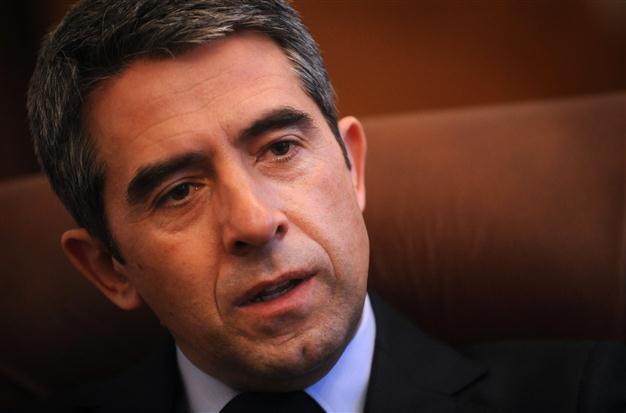New Bulgaria president seeks more active role in EU
SOFIA - Agence France-Presse

Bulgaria's new President Rosen Plevneliev. AFP photo
Bulgaria's new President Rosen Plevneliev said Wednesday he wanted a better image and a more active role for his country in the EU, ahead of talks in Brussels with EU executive chief Jose Manuel Barroso."It is high time for Bulgaria to put itself forward not simply as a member (of the EU) but as an active, outspoken, supportive and responsible member," he said in an interview with AFP ahead of his first trip abroad as president. Bulgaria, which joined the EU in 2007, has until now waited for other members to draw up important decisions regarding the bloc and only joined decisions at a final stage, said Plevneliev, who took office on Sunday. "I want for us to participate in decision-making from the very beginning." He also said Bulgaria's track record in terms of fiscal stability could make it a useful partner at a time of deep crisis in the eurozone, even though the country has not joined the single currency. "Bulgaria has one of the lowest debts in Europe. It could serve as an example to European countries with its strict reforms that were made in due time, in the interests of stability," Plevneliev said.
Bulgaria's public deficit is forecast at 1.35 percent of gross domestic product this year, down from 2.1 percent in 2011, and the government is projecting a balanced budget in 2013.
It is also on course to register one of the best ratios of national debt to economic output among the EU's 27 member states of just 16.0 percent for 2011.
"We can contribute to stability in the eurozone rather than create problems. The most important thing is that Bulgaria be active in the next few months when decisions are taken on the future of the eurozone." Ultimately, Bulgaria should be judged on the basis of "objective evaluations instead of cliches," said Plevneliev, who meets Barroso, president of the European Commission, on Thursday.
Brussels has repeatedly criticised Sofia over its perceived failure to curb widespread corruption, wipe out organised crime and guarantee fraud-free use of European aid money.
But Plevneliv was adamant: "I want to destroy the status quo. I want to change the idea that Bulgaria is a country that lags at the back of the EU queue." "Bulgaria is no longer so corrupt," and its judicial reforms have been extensive, he said. Still, Sofia would continue to need EU funds.
EU aid to Bulgaria was partly blocked over corruption concerns in 2008 and only about 20 percent of the eight billion euros available to it until late 2013 have been used, but Sofia hopes to negotiate a similar amount of money for 2014-2020.
"We will insist for European cohesion policy to remain the same in terms of the amount of aid and to keep its existing priorities," Plevneliev said.
"It is crucial that Europe understands that if Bulgaria does not have quality infrastructure, we aren't giving the regions any chance to develop." Bulgaria should also be allowed to join the passport-free Schengen travel area, a move currently blocked by the Netherlands.
"Bulgaria has done its work and respected its commitments," Plevneliev said.
"We expect European solidarity and respect of the rules by our European partners," he added. He insisted Europe should not fear a wave of Bulgarian migrants and that those countries that have not opened their labour markets should do so now.
"The proof is the countries who have long opened their labour markets to Bulgarians: nothing bad happened to them, nothing changed," he said.
















